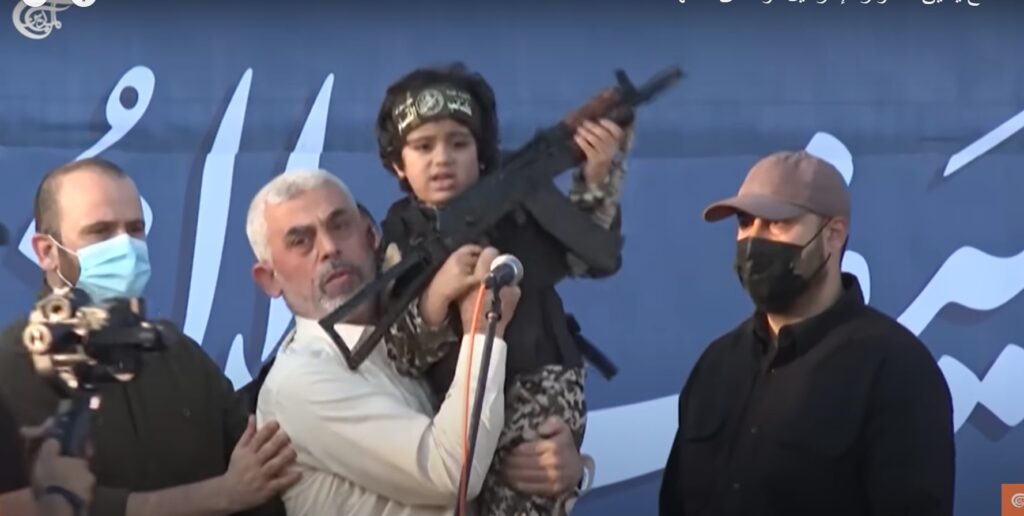The election of Yahya Sinwar as chairman of the political bureau of Hamas has sparked significant reactions worldwide.
Commentators in the Arab world see this process as a unification of all Hamas institutions and leadership around the idea of jihad against Israel, fully supporting the massacre planned and executed by Yahya Sinwar in Israeli settlements near Gaza on October 7 last year.
Hamas swiftly filled the leadership void, selecting a replacement for Ismail Haniyeh immediately after the three days of mourning following his death in Tehran.
Despite internal disagreements between Khaled Mashal and Yahya Sinwar regarding the successor, the movement favored Yahya Sinwar and the pro-Iranian faction over Khaled Mashal, who is affiliated with the “Muslim Brotherhood.”
Sources in Hamas indicate that Khaled Meshaal decided at the last minute to withdraw from the contest, announcing his concession.
Sources in the Gaza Strip suggest he wanted to avoid a direct confrontation with Yahya Sinwar, believing Sinwar’s tenure would be short-lived due to potential elimination by Israel.
Meshaal anticipated the competition for the position would reopen soon.
The election of Yahya Sinwar also serves as a message to Israel: even after 10 months of fighting in Gaza, Hamas’s military wing, led by Sinwar, maintains its strength and continues to lead the fight against the IDF.
This message is also directed at Gaza’s residents, asserting that Hamas remains resilient and has no intention of surrendering to Israel or relinquishing power in Gaza.
Following Sinwar’s election, Hamas media highlighted his military capabilities, portraying him as one of the movement’s historical leaders. Sinwar was instrumental in the first intifada, heading Hamas’s internal security mechanism “Majd,” which aimed to expose collaborators with Israel.
He spent 23 years in Israeli prison until his release in the Shalit deal in 2011.
Ebrahim Almadhoun, a Hamas commentator, revealed that between 2012 and 2017, Yahya Sinwar served as Hamas’s Minister of Defense, overseeing its military wing.
Senior Hamas official Sami Abu Zouheri stated that Sinwar’s election emphasizes Hamas’s unity and awareness of the dangers it faces.
He asserted that Israel’s assassination policy against Hamas leaders would not succeed in weakening the movement.
However, senior Fatah officials in Gaza claim this move is merely symbolic with no practical impact.
Although elected as head of Hamas’s political bureau, Sinwar is in hiding, pursued by Israel, and has limited contact with the political bureau abroad.
His ability to conduct real political activity is constrained, as such actions could expose his location to the Israeli Shin Bet, leading to his elimination.
Fatah sources also argue that Sinwar’s unanimous election is a facade of national unity.
They highlight serious internal disagreements within Hamas regarding its relationship with Iran and intense rivalry between Sinwar, Khaled Mashal, and Musa Abu Marzouk.
They believe Sinwar’s election is intended to demonstrate that the assassination of Ismail Haniyeh will not alter Hamas’s path and that the entire leadership continues to follow his legacy.
There are speculations that Sinwar temporarily emerged from hiding to communicate with Hamas’s leadership abroad during the election process.
Commentator Ibrahim Almadhoun claims Sinwar will soon deliver a speech to mark his new position, although he did not specify how this would be arranged.
It appears Yahya Sinwar aims to project confidence and assert his new role as Hamas’s leader, reinforcing his control over decisions, particularly concerning the ongoing conflict and the Israeli hostage situation.




